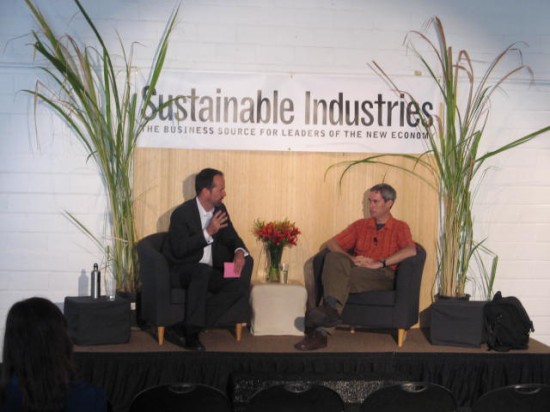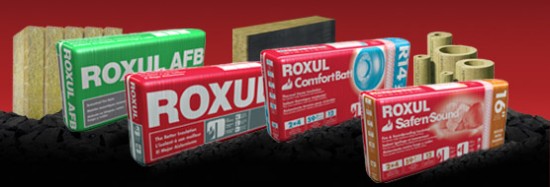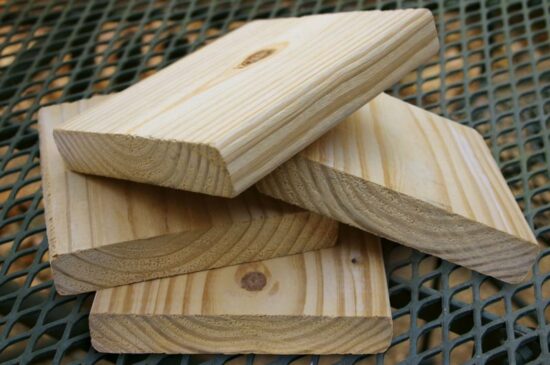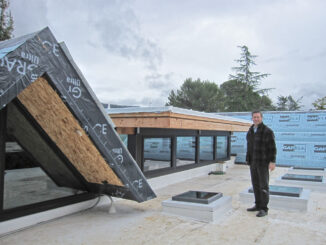
I have subscribed to the Environmental Building News for the last 15 years and it is my favorite subscription that I read religiously. I appreciate it for presenting good, solid research and am a huge fan of Mr. Alex Wilson, the Executive Editor of Environmental Building News and the GreenSpec® Directory, and the Founder and President of BuildingGreen, Inc. based in Vermont. His session at West Coast Green was jammed pack but I was determined to score a space on the auditorium steps.
Mr. Wilson shared with the audience research-based facts and his opinions on numerous green building products as alternatives to the “business as usual” products. This article summarizes the highlights of 3 different product types.
Concrete Masonry Unit (CMU) vs. CMU with Green Ingredients
- Standard CMU uses Portland cement which has a high embodied energy.
- Green Alternative: Kingston Block Pozzotive and Pozzotive Plus CMU. Both CMU products contain up to 30% post-consumer Supplementary Cementitious Material (SCM) which replaces up to 30% Portland cement. Pozzotive is a newly invented, high performance SCM derived from post-consumer waste glass. The Pozzotive Plus CMU contains up to 50% regionally recycled post-consumer aggregate.

Polystyrene Insulation vs. Mineral Wool (Rock and Slag Wool) Insulation
- Polystyrene insulation contains the bromated flame retardant HBCD, and is produced from toxic chemicals: benzene, a known human carcinogen, and styrene which is possibly carcinogenic.
- Green Alternative: Rock wool is a man-made material consisting of natural minerals and slag wool is a man-made material from blast furnace slag. Both types of mineral wool insulation contain no flame retardant and are completely fire safe, inert, suitable for below grade applications, resistant to termites, have high recycled content, and contain a phenol binder but has very low emissions.
- Manufacturers include Roxul Inc., Thermafiber Inc., and Fibrex Insulations Inc.

Wood Treated with Toxic Chemicals vs. Wood Treated with Non-Toxic Ingredients
- Pressure treated wood is traditionally treated with chromium, copper, and arsenic which is a carcinogen.
- Green Alternative: the TimberSil Glass Wood product line offers an environmentally friendly alternative. The wood is saturated with non-toxic and non-corrosive sodium silicate, a melted mix of sand and soda ash. It is then heated to fuse a barrier of amorphous glass which surrounds and fuses the fibers in the wood, thus rendering the wood as unrecognizable as a food source to pests such as termites. TimberSil is fire resistant, durable, has great nail pull resistance, does not creep, and fully paintable.





Be the first to comment